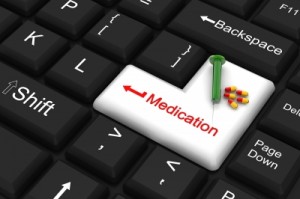As an anti-aging vitamin, B12 won’t really turn back the hands of time, but it will help to delay many of the symptoms of aging. Vitamin B12 is one of many essential nutrients that keeps you feeling sharp, energetic and on top of the world. Find out what vitamin B12, the anti-aging vitamin can do for you.
There’s no end to the amazing health-giving properties of vitamin B12 (cobalamin), a member of the B vitamin complex group of nutrients.
Vitamin B12 adds energy
To start, vitamin B12 regulates production of red blood cells. Without enough vitamin B12 to oversee development, your red blood cells would emerge large and misshapen- in no condition to supply much-needed oxygen throughout the zillions of cells in your body. As a result, mornings feel sluggish, and by midday you’re too wiped out to even think about what’s for dinner.
If you’re thinking that it’s not normal to feel this old when you’re still so young, then you’re right. Chronic fatigue from vitamin B12 deficiency is often a sign that you’re not getting enough oxygen. Get your vitamin B12 stores back to normal, replenish red blood cell production, and then kick-start the anti-aging vitamin properties of vitamin B12 for more energy.
Stop Vitamin B12 Deficiency Fatigue-Top 4 Energy-Boosting Foods
Think young
In addition to feeling tired all the time, vitamin B12 deficiency also ruins your memory, gives you “brain fog.” You used to be able to summon words for things quickly, any word, without having to think about it. Now, you could spend half an hour trying to remember where the Pope lives. (It’s the Vatican.)
This is by far one of the most debilitating, geriatric-type symptoms of not having enough anti-aging vitamin B12 in your body.
Vitamin B12 for quick reflexes
Vitamin B12 also affects your nerves; by helping your body produce myelin (think of it as Teflon for nerve cells), vitamin B12 keeps your nervous system running smoothly without a hitch. With vitamin B12 deficiency, your myelin coating slowly diminishes, leaving your nerve cells vulnerable to harm and communication breakdown.
As a result, your reflexes become slower, and you start to feel aches and pains associated with old age. You may feel painful numbness in your fingertips whenever you try to hold up a book to read, or find yourself hopping on one leg just to relieve the dreadful “pins and needles” you get after sitting for too long. Your digestion starts to malfunction, and you find yourself tripping often, as your motor skills deteriorate.
Is Vitamin B12 the Secret to the Fountain of Youth?
It’s not too late to get more anti-aging vitamin B12 into your blood supply, to build up your myelin shield, and prevent nerve damage (peripheral neuropathy) from vitamin B12 deficiency.
Anti-aging vitamin regimen
In order to get that youthful feeling back, you need to get your vitamin B12 levels back to normal. Many people opt for vitamin B12 injections or sublingual pills, as prescribed by their doctors. However, other types of vitamin B12, available without prescription, can efficiently replenish your vitamin B12 supplies without the need for painful needles or endless pills throughout the day. Look for non-edible vitamin B12 for maximum absorption and optimal brain health.
Please tell us…
Do you have any questions or suggestions? Please leave your comments below.
Share with your friends!
If you found this article helpful, then please share with your friends, family, and coworkers by email, Facebook, or Google+.
Like this? Read more:
Will Vitamin B12 Boost Energy if I don’t have B12 Deficiency? YES!
7 Reasons You Have Brain Fog…And What to do About It
Images courtesy of FreeDigitalPhotos.net













